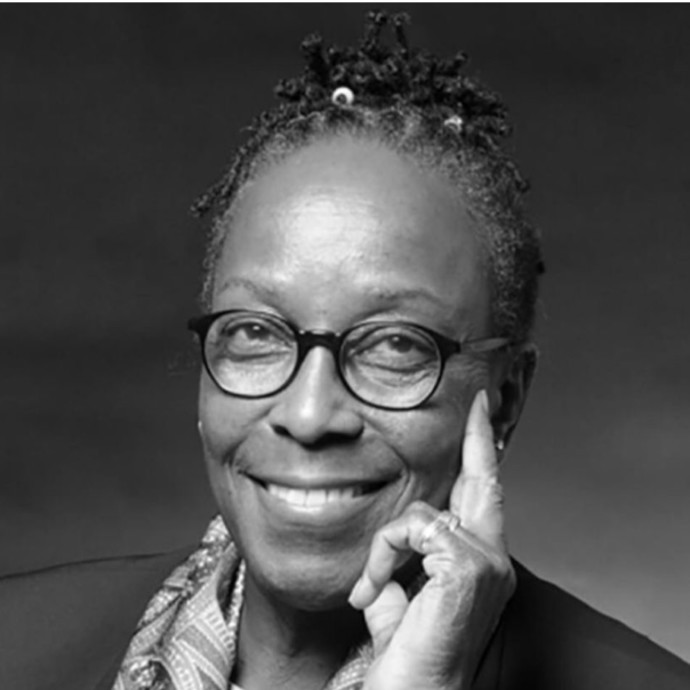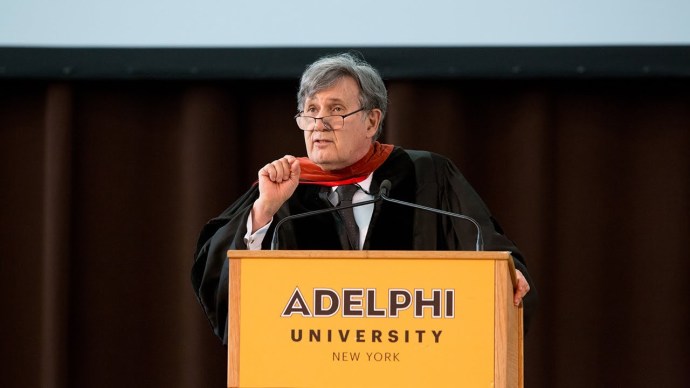For David Machlis, Ph.D., associate professor of finance and economics at the Willumstad School of Business and the inaugural recipient of Adelphi University’s President’s Humanitarian Award, “fighting hatred is a team game and can’t be done alone.” Machlis is piloting a new program that will bring Adelphi University’s Black and Jewish students together to make a difference in the world.
Sponsored by the Adelphi University Division of Student Affairs in conjunction with the International March of the Living, “Two Museums Program: United We Stand” is a program of the Robert B. Willumstad School of Business DEI Council.
In March, twenty Adelphi Black and Jewish students went on the program’s two-day trip to Washington, D.C. to visit the National Museum of African American History and Culture and the United States Holocaust Memorial Museum.

According to Marsha J. Tyson Darling, Ph.D., special assistant to the president for strategic initiatives and adjunct faculty at the Center for African, Black and Caribbean Studies, it will enable participants to “engage in conversations about the root causes and unjust consequences of hate, antisemitism, racism and intolerance.”
Making a Difference in the World
The program’s goal is to inspire the two student groups to stand united against intolerance and hate. “The Holocaust is not just a Jewish issue, and racism is not just a Black issue,” Dr. Machlis insisted.
“We must learn from the past so a more tolerant and just society will emerge. We want students to be boots on the ground and become leaders in reducing the impact of hatred and intolerance.”

As a co-founder of the International March of the Living and of the program’s March of Remembrance and Hope project, Dr. Machlis has established relationships with renowned leaders in the fight against intolerance: “The Two Museums program is an opportunity for students to commit to building a world of freedom and justice for all members of humanity.”
John Farmer, Jr., former New Jersey attorney general and current director of the Rutgers University Eagleton Institute of Politics and its Miller Center for Community Protection and Resilience, is one such leader. He noted that “a deep current of common culture and mutual interest runs between the African American and Jewish American communities. By visiting both the Holocaust Museum and the African American Heritage Museum, this program will underscore those common ties and the commitments to end racism and bigotry that are the core values of both communities.”
Brad Greissman, a participant in the program, said, “In the past two days, I had the opportunity to embark on a journey that has changed my life. Over the last few years, there has been a resurgence in tribalism. Through this resurgence, we have seen an increase in racism, antisemitism and other forms of bigotry towards certain religions and ethnicities. In order to bridge the divides, it is vital to bring these groups together. Germany already had many problems before Hitler came to power. He blamed these problems on the Jews, which caused one of the deadliest genocides in human history. The Two Museums Program helped me understand the struggles of different people in this country, and how to bring these people together.”
“This program greatly expanded my capacity to love and influenced a drive to fight against hatred,” said another student. “Having the opportunity to visit the two museums helped me understand the destruction that ignorance can bring to a group of people. If there’s one thing I took away from TMP, it’s to be proactive rather than reactive.”
